The Islam, Academia & Research collection forms part of Digital British Islam’s (DBI) archive. It represents a work-in-progress. The focus here is on the study of Islam and Muslims in higher education, which is relevant in informing central themes of DBI’s work, as well as fulfilling a need to archive and record the diverse work undertaken in the field – with a particular focus on the study of Islam and Muslims in the UK.
Activities take place at multiple levels, from undergraduate and postgraduate teaching at institutional levels to research projects (funded and otherwise) and the activities of individual researchers in the field. The collection also includes the significant activities of subject associations. There is cross-over in this collection with activities at other educational institutions (highlighted in the Education collection).
The study of Islam and Muslims can be multidisciplinary and interdisciplinary in scope, with levels of ambiguity in terms of definition, reflecting the complexity of fields as well as the multifarious components associated with ‘Islamic Studies.’ Some of this is reflected in this collection:
One significant feature of the digital British academic landscape is the presence of subject organisations focused on Islam and Muslims in the UK: for example, the Muslims in Britain Research Network (MBRN), founded in 1992, acts as a hub for conference and networking activities. Its website offers further connections through WhatsApp, mailing lists, and social media. A key event for MBRN is the Annual Conference. Other events are archived, although details do not stretch back to MBRN’s foundation.
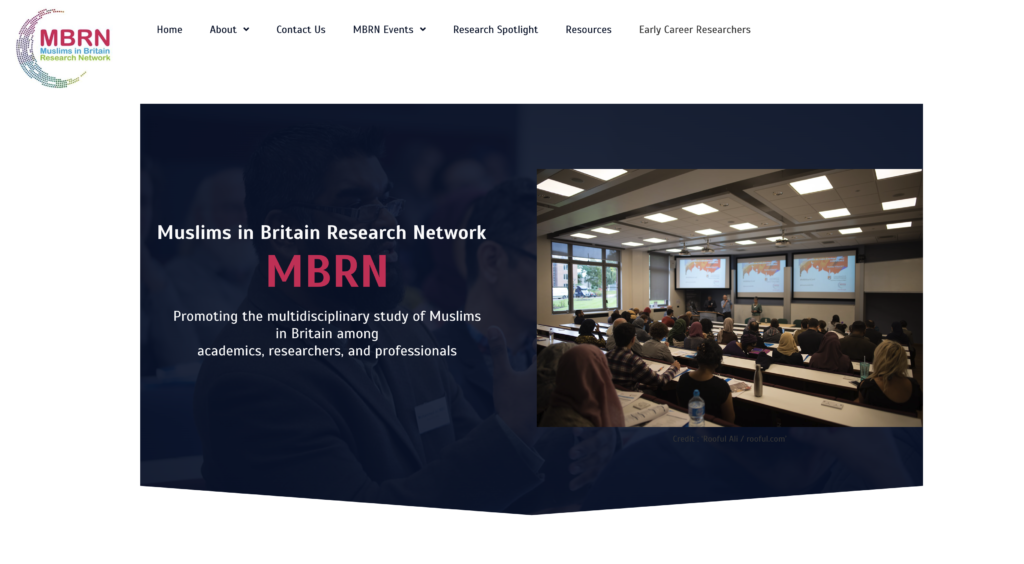
Screenshot: Muslim in Britain Research Network front page
The website of the British Association for Islamic Studies (BRAIS) highlights its conference activities back to 2014, with details of speakers and programme themes. BRAIS gives an annual Prize in the Study of Islam and the Muslim World for a doctoral thesis or unpublished monograph. Its website acts as a hub for conference organisation. BRAIS‘ social media reinforces its networking activities, with captures of event activities on X.
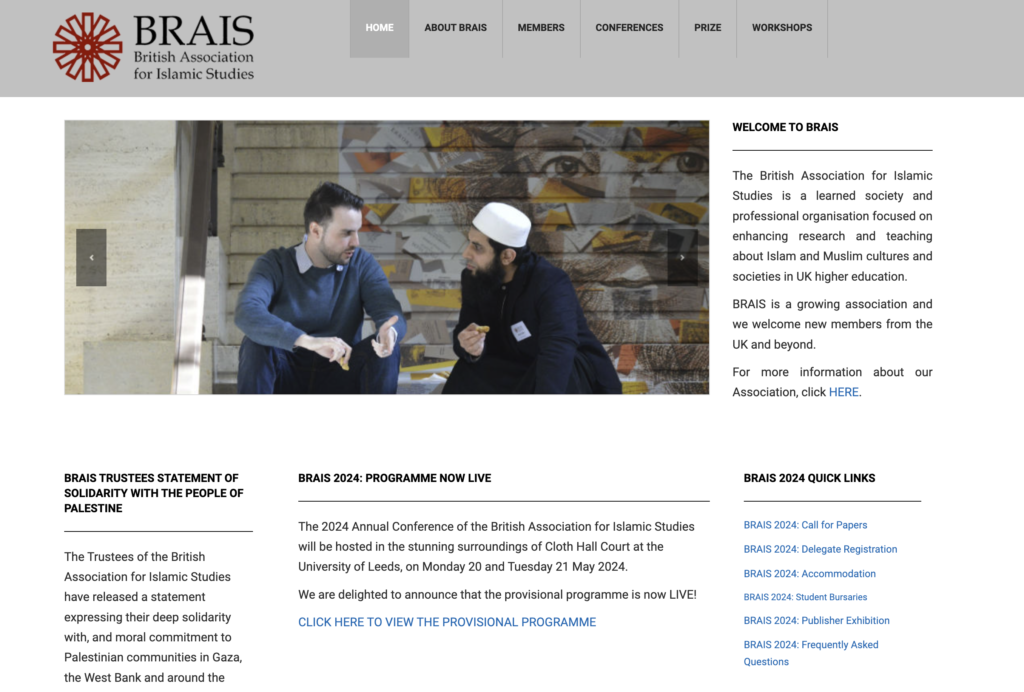
Screenshot: British Association for Islamic Studies front page
Among other subject associations with more international, linguistic or region specific interests (not all listed here) special mention should be given to the British Society for Middle Eastern Studies (BRISMES). Founded in 1973, BRISMES has acted as a pre-eminent subject association across multidisciplinary and interdisciplinary areas associated with ‘Middle Eastern Studies‘. It has increasingly acted as a campaigning and advocacy platform, in particular with statements on the Gaza crisis, captured on its website but also disseminated via X. BRISMES runs an Annual Conference, workshops, an annual series of prizes, and graduate networking events. The society’s British Journal of Middle Eastern Studies (BJMES) journal is peer-reviewed and published five times a year.
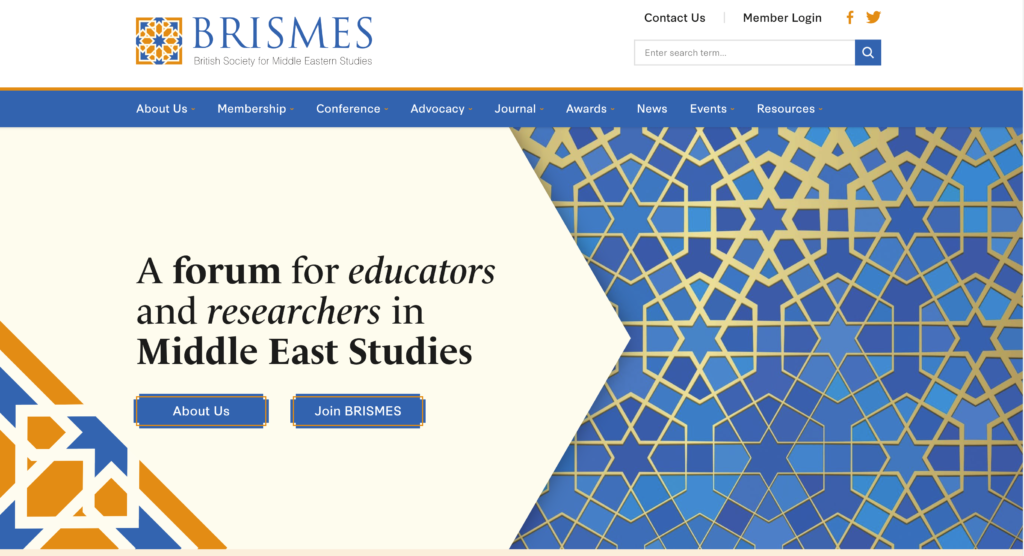
Screenshot: British Society for Middle Eastern Studies website front page
The DBI archive also captures the activities of university centres, departments, and individual academics across the study of Islam. An increasing amount of attention has been paid to the study of Islam and Muslims in the UK, which is a developing field crossing diverse disciplinary perspectives. Cardiff University’s Centre for the Study of Islam in the UK is prominent in its focus in this field, especially in its research activities in chaplaincy, environmentalism, and education issues.
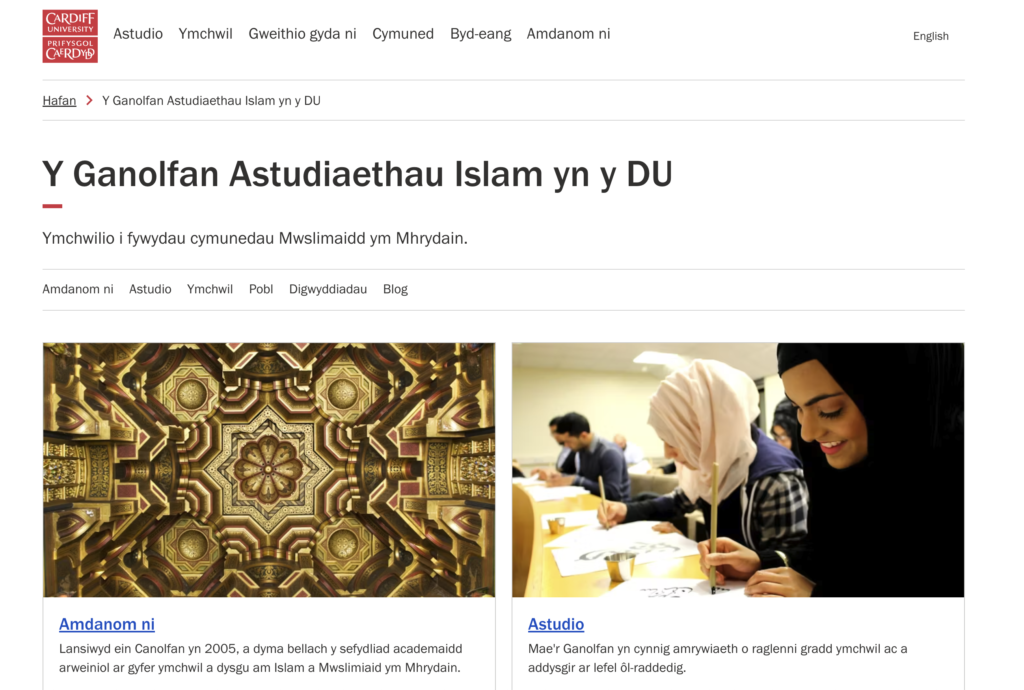
Screenshot: Y Ganolfan Astudiaethau Islam yn y DU (Welsh language front page of the Centre for the Study of Islam in the UK , Cardiff University)
The DBI archive also captures specific research websites associated with projects of relevance to Islam and Muslims in the UK: this includes Keele University’s #ContestingIslamophobia: Representation and Appropriation in Mediated Activism, which has a specific digital narrative associated with an exploration of online Muslim activism. The SOAS hosted Re/presenting Islam on Campus reflects the findings of a research project on how Muslims and Islam are perceived in university contexts. The University of Leeds‘ Hajj and British Muslims project includes a rich resource of online research materials, featuring content which featured in the British Museum’s Hajj: Journey to the Heart of Islam exhibition, alongside a report on the UK Hajj sector.
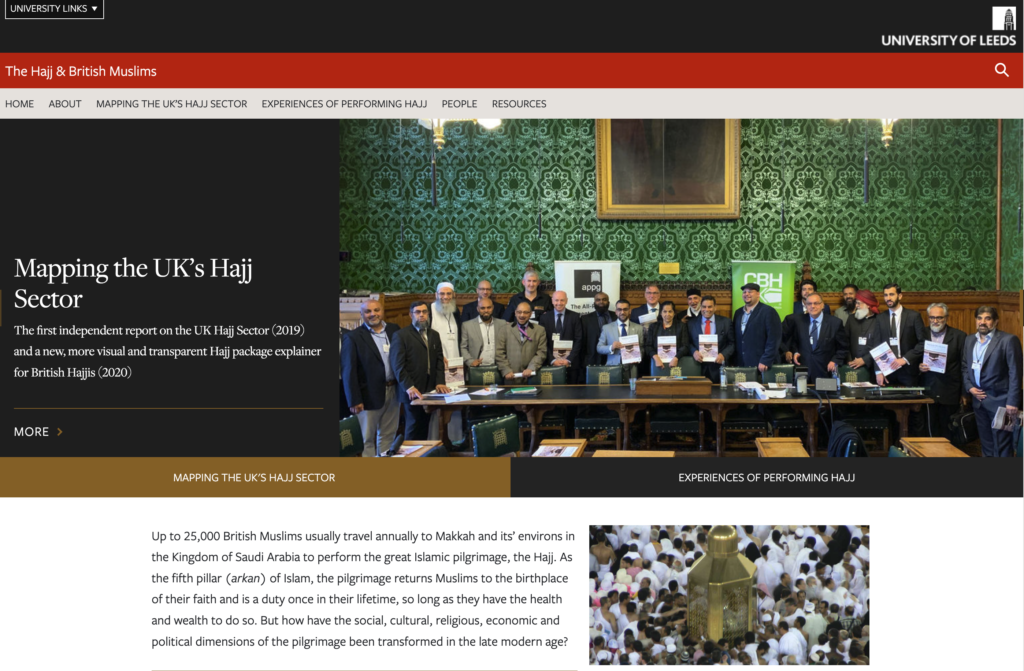
Screenshot: the Hajj and British Muslims, University of Leeds front page
These and other materials in the Islam, Academia & Research collection have been archived by the Digital British Islam project. One rationale for this is that pages can disappear over time, with valuable content being lost for future examination – this is particularly significant within academic and research sectors, some of which are facing major challenges within higher education sectors. The archive’s overview will continue to be updated and maintained as part of the research project, as this sector has a particular impact on understandings of Digital British Islam. This collection remains a work in progress. Suggestions for additional archived content are welcomed via X and Facebook. Related content can be found in the DBI Education Collection.
Further reading:
Bernasek, L. and Bunt, G. (2010) Islamic Studies Provision in the UK: a report to HEFCE by the Higher Education Academy. Bristol: HEFCE. (PDF)

